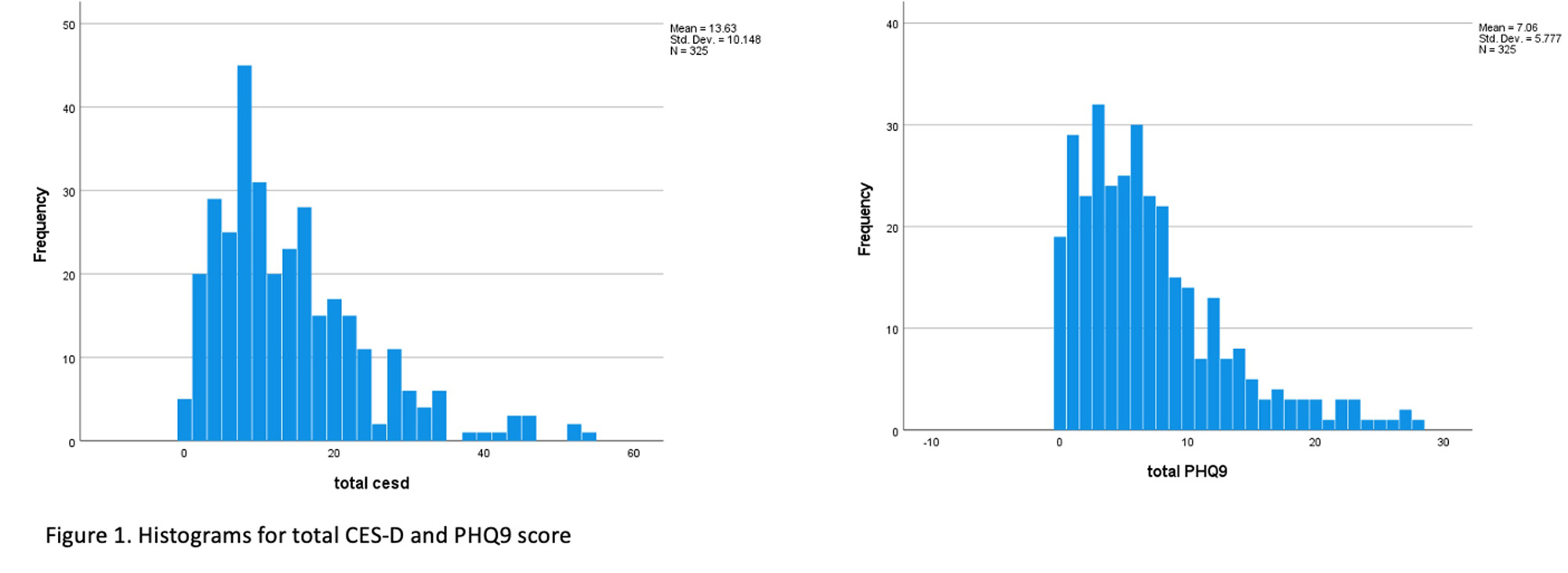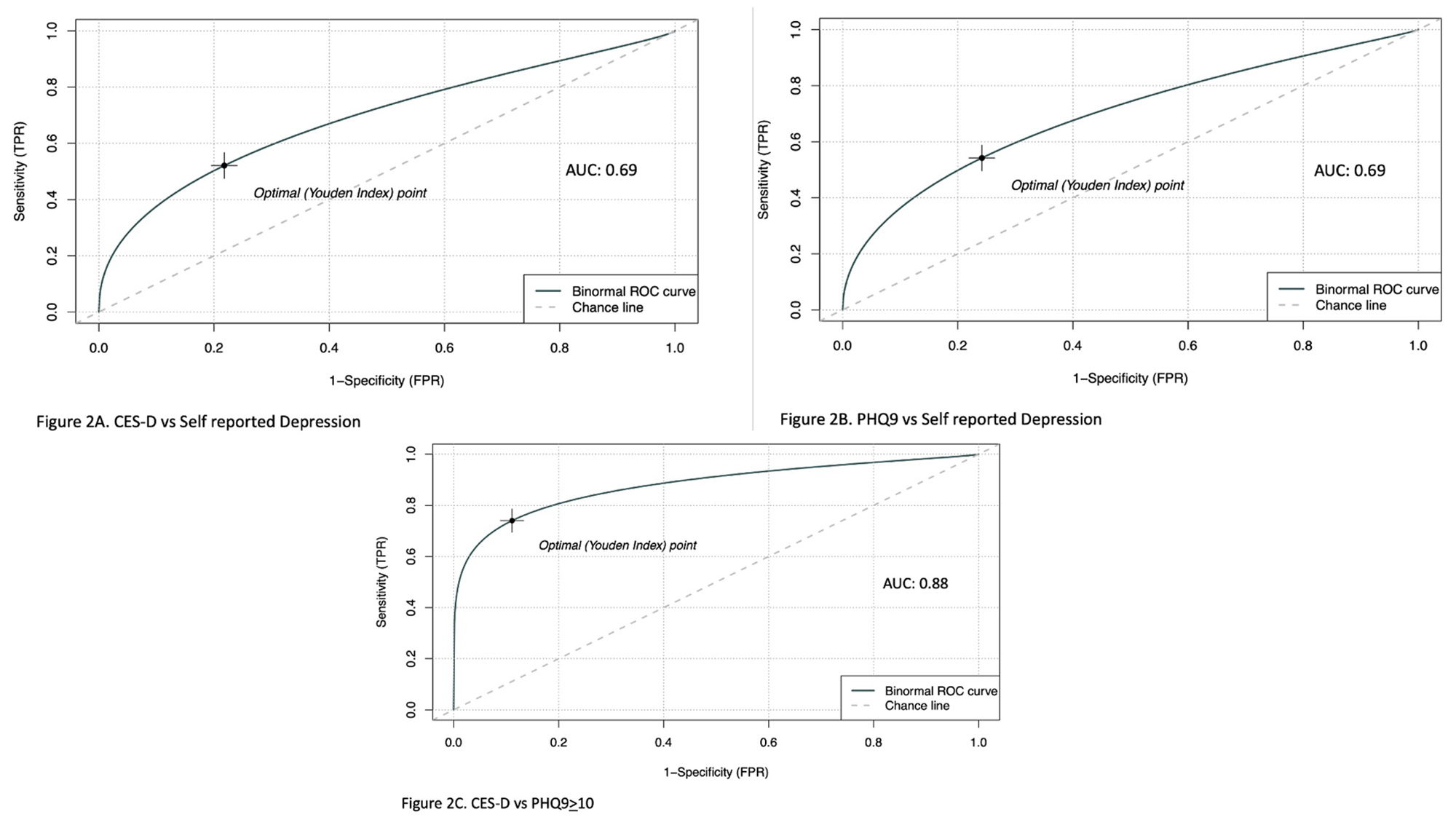Session Information
Date: Sunday, November 12, 2023
Title: (0325–0344) Patient Outcomes, Preferences, & Attitudes Poster I
Session Type: Poster Session A
Session Time: 9:00AM-11:00AM
Background/Purpose: Ankylosing Spondylitis (AS) is a chronic inflammatory disease that primarily affects the spine and sacroiliac joints. Depression is a common comorbidity in AS patients and can have a significant impact on their quality of life. The Center for Epidemiologic Studies Depression Scale (CES-D) is a widely used self-report questionnaire for measuring depression in various populations. However, the validity of CES-D in AS patients is unclear.
Methods: We investigated the psychometrics of the CES-D in AS by studying Prospective Study of Ankylosing Spondylitis (PSOAS) observational cohort patients with baseline, concomitant PHQ9 and self-reported depression. Construct validity was examined through convergent and known-groups validity. CES-D and PHQ9 was assessed using Pearson’s correlation coefficient. Known groups validity for the CESD was tested using student’s t-test comparing patients with and without self-reported depression. To find the optimal cutoffs, ROC curves were made plotting CES-D against Patient reported depression, PHQ9 against Patient report depression and CES-D against PHQ9≥10. The optimal cutoff point was found using Youden’s index.
Results: 846 of the patients from the PSOAS cohort had completed CES-D at their initial visit. Of those, 325 had completed CES-D, PHQ-9, and self-reported depression. 25% (83/325) had PHQ9 > 10, 34% (112/325) had CES-D > 16 and 17% (56/325) had self-reported depression. Of the patients with self-reported depression, the average CES-D score was 19.8 and the average PHQ9 score was 10.7.The CES-D showed strong correlation with PH9 in AS patients (r > 0.82, p < 0.01) (Figure 1).T-test was significant comparing CES-D scores of AS patients with and without self-reported depression (p< .01) with a mean difference of 7.5 (4.6-10.3 95% CI).The ROC curves are shown in Figure 2. AUC’s of these ranged from: 0.69-0.88. The optimal cut off point for CES-D in these patients based on Youden’s index was 17-18.
Conclusion: In our AS patients, the CES-D scores are valid and have good construct validity. CES-D correlated well with self-reported depression and PHQ9. This suggests that CES-D is valid in this patient population and that a CES-D cutoff of 18, like that found in Rheumatoid Arthritis patients1, may be a better cutoff value to indicate depression in AS patients.
To cite this abstract in AMA style:
Farran Y, Hwang M, Reveille J, Gensler L, RA SLE Network A, Ishimori M, Ward M. Assessment of Depression in Ankylosing Spondylitis Using Center for Epidemiologic Studies Depression Scale [abstract]. Arthritis Rheumatol. 2023; 75 (suppl 9). https://acrabstracts.org/abstract/assessment-of-depression-in-ankylosing-spondylitis-using-center-for-epidemiologic-studies-depression-scale/. Accessed .« Back to ACR Convergence 2023
ACR Meeting Abstracts - https://acrabstracts.org/abstract/assessment-of-depression-in-ankylosing-spondylitis-using-center-for-epidemiologic-studies-depression-scale/


